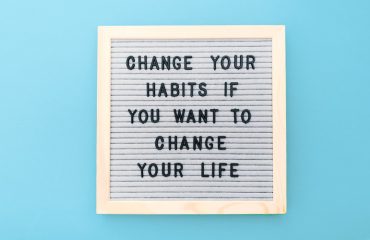
I start my day at 6.30 a.m. down the pool. I’m a bit bleary-eyed but I know the swim wakes me up! As a ‘treat’ I might have a lie in until 7 and do a half hour workout at home.
My work is sedentary and I need to keep fit and alert for clients, so exercise is important – also, I don’t want ‘therapist’s bottom!’ Then it’s breakfast, admin. which includes calling clients, having case management and writing up notes. I make time for reading the many professional journals and books on what I do.
Every day varies. I could be telephone coaching an employee who has just returned to work after several weeks’ absence and who is anxious about their performance. It’s satisfying to hear how they are regaining confidence. The challenge is to develop a good relationship over the ‘phone when we can’t see each other, so the tone and pacing of my voice is important. Feedback is 99% positive and coaching is particularly in demand by people who would not consider counselling but know they need support. Coaches tend to be goal orientated and are willing to do assignments between sessions to help them re-focus and be productive again at work.
Some days I might be called out to do an onsite Critical Incident where staff have been traumatised by a robbery, a death in service of a colleague or the effects of sudden redundancy notices.
Mediation is often on site – it’s particularly demanding and, like couples therapy, it’s vital that as a mediator I remain strictly impartial. The aim is to help the parties involved to come to a workable agreement that they can commit themselves to by changing their behaviour and communicating better.
As the week progresses, I see my individual therapy clients for counselling and Eye Movement Desensitisation Reprocessing, or EMDR. Increasingly people are coming because they are tired of waiting for an NHS therapy referral and have decided to go privately. Often the wait for a doctor’s referral can be as long as 3 months and for someone who feels psychologically fragile, this is far too long. Problems include issues for divorcing and separating couples, childhood abuse experiences (mentally, sexually and/or physically), eating disorders, bereavement and traumatic events such as road traffic accidents. There is almost always an experience of loss, whatever the presenting problem might be.
My approach in all the areas that I work is solution focused – I don’t have the answers, but as part of a team of two or more, we look at what is working already and we build on this. It’s often very small steps that people make and which help them to find solutions.
Respect for clients and honesty about what I can and can’t do for them is fundamental to the work. It’s a privilege to be given a small window into someone’s life and I still get a lot of satisfaction from supporting them on part of their journey!



